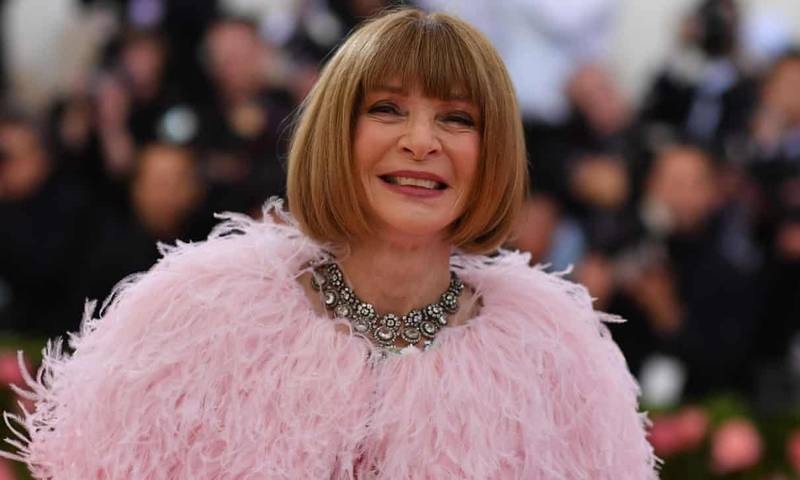Editor of fashion bible says sorry for printing ‘hurtful and intolerant’ stories and images
Anna Wintour, the editor-in-chief of US Vogue, has admitted to making mistakes and publishing material that has been intolerant, as well as not doing enough to promote black staff and designers at the fashion magazine.
In a company-wide internal memo, written last Thursday and seen by the New York Post this week amid nationwide unrest and protests over the killing last month of George Floyd, Wintour apologised to staff at the magazine for “publishing images or stories that have been hurtful or intolerant”, admitted there were too few employees of colour, and took full responsibility for mistakes made during her 32-year tenure.
“I want to say plainly that I know Vogue has not found enough ways to elevate and give space to black editors, writers, photographers, designers and other creators. We have made mistakes too, publishing images or stories that have been hurtful or intolerant. I take full responsibility for those mistakes.”

The statement follows an extensive reckoning at media organisations as demonstrators in the US and abroad join global protests prompted by the death of George Floyd, a black man who died in Minneapolis after a white police officer handcuffed him and pinned him to the ground with his knee for almost nine minutes.
Earlier this week, Adam Rapoport, the editor-in-chief of the Condé Nast title Bon Appetit, resigned after a photo of him in brownface came to light, as well as ongoing criticism of how the food magazine treats employees of colour.
On Monday, Christene Barberich, the editor of the lifestyle website Refinery29, also stepped down after accounts surfaced from staff who said they had experienced racist discrimination at the company. On Wednesday, Samira Nasr was named US Bazaar’s new editor-in-chief, the first black editor-in-chief in the magazine’s 153-year-old history.
According to Page Six, a celebrity gossip website, the memo states that Wintour “[wants] to start by acknowledging your feelings and expressing my empathy towards what so many of you are going through”.
The Guardian approached Condé Nast for a statement but had not heard back by the time this article was published.
Following the resignation of Rapoport, the publishing company issued a brief two-part statement on Twitter in which it briefly outlined its “zero-tolerance policy toward discrimination and harassment in any forms”.
Wintour writes: “I want to say this especially to the black members of our team — I can only imagine what these days have been like. But I also know that the hurt, and violence, and injustice we’re seeing and talking about have been around for a long time. Recognizing it and doing something about it is overdue.”
“It can’t be easy to be a black employee at Vogue, and there are too few of you,” she writes. “I know that it is not enough to say we will do better, but we will – and please know that I value your voices and responses as we move forward. I am listening and would like to hear your feedback and your advice if you would like to share either.”

The model Beverly Johnson became the magazine’s first black cover star in 1974, but it was not until 2018 that Tyler Mitchell became the first black photographer to shoot a Vogue cover – Beyoncé, for the September issue – in its 125year history.
The 70-year-old British-born editor was recently criticised following the publication of a memoir by US Vogue’s former editor-at-large, André Leon Talley, in which he accused her of inflicting on him “huge emotional and psychological scars” and said his departure from the magazine “felt like I was just thrown under the bus”. Talley’s name still appears on the US Vogue masthead, a list of its current staff.
Wintour’s note ends with a promise to “support organizations in a real way. These actions will be announced as soon as possible.”

